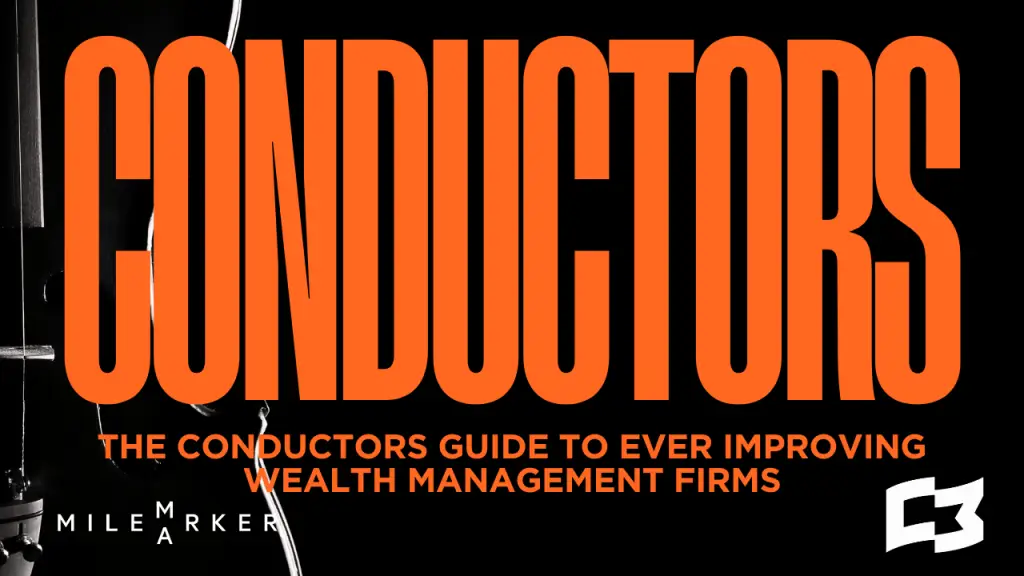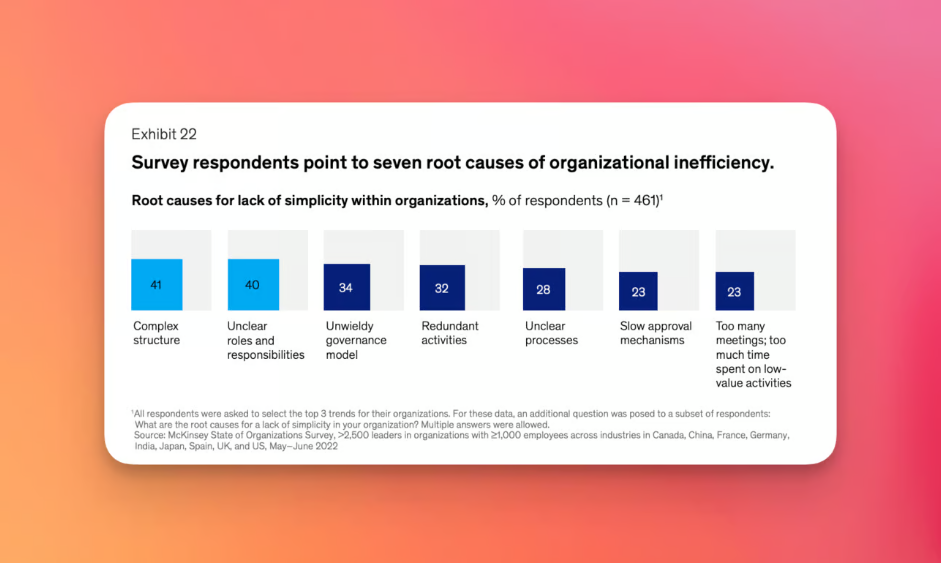The Conductors Guide to Ever Improving Wealth Management Companies

This past week, as part of our end-of-year activities, my sixth-grade daughter performed for around 1,000 people from our community, marking the conclusion of her orchestra season.
Watching her journey as a violinist has been wonderful.
It’s not just her individual growth that stands out, but the collective transformation of the entire orchestra.
This metamorphosis from a group of individuals who squeaked out individual notes just last fall to a cohesive unit playing music dynamically beautifully mirrors the change and success we strive for in our organizations.
Reflecting on nine months of practice, training, and mentorship, it’s amazing to see what kids can achieve, even when the students apply different levels of discipline.
Like so many teams, the kids started all over the place. Each home situation is different, and each student has a unique dedication and learning style.
But under the proper guidance and repetition, all of those variables suddenly fade away with the orchestra’s quickly synchronized rhythms.
This growth process is a powerful reminder of the transformations we aim for in our teams. When we start a team, we assemble a diverse group of talented individuals, figuring out their roles, understanding the market, and learning how to deliver unique services effectively.
The success of an orchestra—or any team—often hinges on the conductor’s ability to orchestrate various elements harmoniously. As leaders, we play a similar role. Our job is to help everyone play their part well, ensuring all components work together seamlessly. This involves guiding, supporting, and sometimes participating directly in the work to lead by example.
In wealth management, like in music, we need to help others read the sheet music, understand the dynamics, anticipate changes, and work together. What happens when we see our team struggling? How do we minimize the wrong notes, help our team feel the dynamics and anticipate what’s coming next?
Evaluation
Just like my daughter’s orchestra, your team needs continual evaluation in order to get feedback that helps them improve.
Do you have a daily, weekly, monthly, quarterly and annual review system?
Are you following it?
Make sure your team knows the details about what they are going to be evaluated on and how that review will take place. Calendar the reviews and don’t let them fall to the wayside.
Of course, just having evaluations won’t make your team better. You’re going to have to hold them accountable to the work they agreed to do and set up systems and plans for anywhere they are falling short.
If you want optimal performance, help them understand how working differently from how they have been will create something greater. Help them understand how their work connects to the whole orchestra. Obviously, you have to have a clear vision of what success looks like and make adjustments as needed to achieve that vision.
The Risk of Just Hoping for the Best
Over the past nine months, my daughter’s orchestra teacher has had to work with her students to weed out ideas and behaviors holding the musicians back. She has corrected finger placements and inter-student hijinks. She has had to discern when to step in and when to ignore something and let the students learn on their own.
I’m sure it wasn’t easy because leading people is never easy.
Leading them through teachable moments and helping them stretch beyond their current knowledge or behavior is not something you can just hope will improve.
How you communicate change matters. Here’s why:
1. Damaging Trust: Frequent or poorly communicated changes can lead to uncertainty and mistrust among employees. A study by SHRM found that 60% of employees experience stress and reduced trust when organizational changes are not communicated effectively.
2. Lowering Morale: Disruptive changes can lower employee morale, decreasing productivity and increasing turnover. Research from the Chartered Institute of Personnel and Development (CIPD) indicates that organizations with high levels of change without proper support see a 30% increase in employee turnover.
3. Creating Confusion: Without clear reporting lanes, your team may become confused about their roles and responsibilities, leading to inefficiencies and mistakes. If we want to curb those wrong notes, we need to make sure that every player knows their part, and in so doing, every person will experience reduced stress, more profound clarity, and a sense of more substantial purpose.
When You Need to Rearrange the Team
If your team needs to be reorganized, here are the two key points to keep top of mind as you begin:
1. Optimize for Skill Sets: Reassessing and realigning roles ensures that each team member’s skills are used effectively. According to a study by McKinsey & Company, ~40% of team members find that the complexity of their teams hurts their overall productivity.
2. Structure for Efficiency: Clear lanes of reporting help streamline processes and reduce bottlenecks. Like in any activity, the clearer each person understands their part of the playbook, the more successful each play will be.
Conclusion
As we move into summer and finish Q2, I’d love to hear how you are arranging the chairs in your organization.
What are your keys to orchestrating excellent outcomes?
Share your strategies and insights, and let’s learn from each other.

